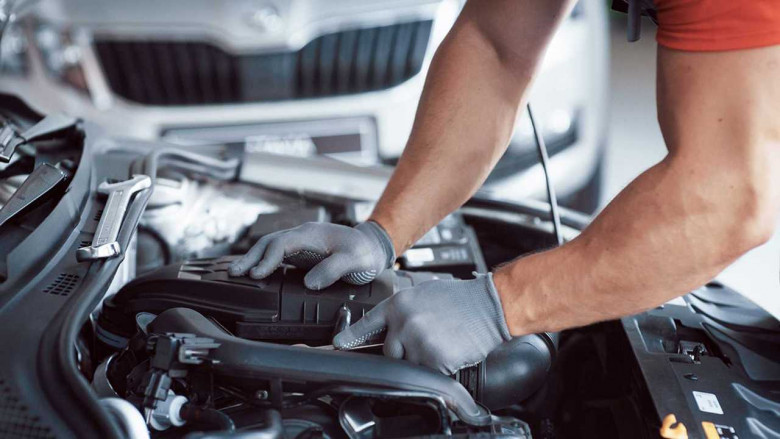views
Understanding what voids a car warranty in Canada is essential for every vehicle owner. A car warranty provides peace of mind, covering repairs and replacements for certain parts and systems within a specified period. However, many drivers are unaware of the specific actions or circumstances that can void this coverage. In this article, we will explore ten key factors that can void a car warranty in Canada, ensuring you stay informed and protect your investment.
1. Unauthorized Repairs and Modifications
One of the most common reasons a car warranty can be voided is the installation of unauthorized repairs or modifications. If a vehicle owner attempts to repair or modify their car without following the manufacturer's guidelines or using certified parts, the warranty provider may deny coverage. For example, aftermarket modifications such as engine tuning, custom exhaust systems, or non-approved suspension upgrades can interfere with the vehicle's original design and performance, leading to warranty voidance. Always consult your vehicle’s manual or speak with authorized service centers before making alterations to ensure your warranty remains valid.
2. Neglecting Regular Maintenance
Failing to perform scheduled maintenance as specified by the manufacturer is a significant factor that can void a car warranty in Canada. Routine services such as oil changes, brake inspections, tire rotations, and fluid checks are vital for the longevity and proper functioning of your vehicle. If these are neglected, and a malfunction occurs due to poor maintenance, the warranty provider may refuse to cover the repair costs. Keep detailed records of all maintenance performed and adhere to the manufacturer’s recommended service schedule to safeguard your warranty coverage.
3. Using Non-Approved Parts or Fluids
Utilizing non-approved or inferior-quality replacement parts and fluids can also void your car warranty. Manufacturers specify particular parts, oils, and fluids to ensure optimal performance and compatibility. For example, using generic or counterfeit parts during repairs or refueling with non-recommended fuel or oil can cause damage and lead to warranty denial. Always use genuine or manufacturer-recommended parts and fluids, and retain receipts and documentation to prove compliance if needed.
4. Accidents and Unauthorized Repairs Post-Collision
While accidents themselves do not automatically void a warranty, the repairs following a collision must be performed by authorized professionals using approved parts. If a vehicle owner attempts to repair collision damage independently or through unauthorized repair shops, it could void the warranty. Additionally, failure to report accidents promptly or neglecting necessary repairs can complicate warranty claims. It is crucial to work with certified repair centers and keep a detailed record of all repairs related to accident damage.
5. Ignoring Warranty Exclusions and Fine Print
Every car warranty comes with specific exclusions and conditions outlined in the warranty document. Ignoring these details can lead to unexpected voidance. For example, some warranties exclude coverage for damages caused by racing, off-road driving, or certain environmental conditions like flooding or salt corrosion. It’s important to read and understand your warranty’s fine print to avoid situations where coverage is denied due to circumstances beyond the manufacturer’s control.
6. Using the Vehicle Outside of Approved Conditions
Driving your vehicle outside the parameters set by the manufacturer can void your warranty. For instance, using a personal vehicle for commercial purposes, such as ride-sharing or delivery, may not be covered under a standard car warranty. Similarly, if a vehicle is used in a manner that exceeds its intended design, such as overloading or aggressive driving, certain warranty claims could be denied. Always ensure your vehicle’s use aligns with the intended purpose outlined in your warranty agreement.
7. Failure to Report Problems Promptly
Delayed reporting of mechanical issues can jeopardize your warranty coverage. If a defect or problem is noticed, but the owner delays in notifying the dealership or repair shop, the damage may worsen, leading to more extensive repairs that could fall outside warranty coverage. Promptly reporting issues ensures timely diagnostics and repairs, and helps preserve your rights under the warranty terms. Keep a record of all communications and inspections related to warranty claims.
8. Vehicle Tampering and Unauthorized Repairs
Tampering with a vehicle’s systems or attempting DIY repairs that interfere with the manufacturer’s design can void your warranty. This includes disconnecting sensors, altering emissions systems, or modifying engine components without proper authorization. Manufacturers often include clauses that void the warranty if the vehicle has been tampered with or repaired by unauthorized personnel. Always seek professional, authorized service to maintain warranty validity.
9. Non-Compliance with Recall Notices
Failing to respond to or comply with manufacturer recall notices can impact your warranty rights. If a recall involves a safety or emission issue and the necessary repairs or replacements are not carried out, subsequent repairs related to the same defect may not be covered. Keep track of any recall notices for your vehicle and have the necessary repairs performed at authorized centers to ensure ongoing warranty protection.
10. Damage Due to Environmental Factors or Neglect
Certain types of damage caused by environmental factors such as rust from road salt, flood, or extreme weather conditions can void parts of your car warranty, especially if neglect contributed to the damage. For example, failing to wash off salt after winter or ignoring signs of rust can lead to corrosion that isn’t covered under warranty. Maintaining your vehicle and addressing environmental damage promptly is essential to preserve your warranty rights.




Comments
0 comment